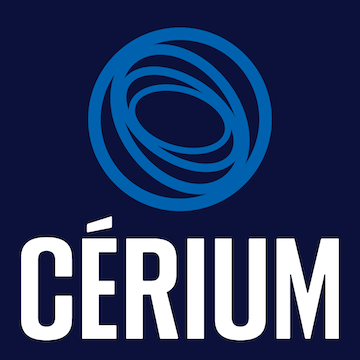Between the EU and Russia, zone of contestation
PRÉSENTATION
Du 17 au 22 juin - PLU6910A
One of the defining aspects of post-Cold War European political and social development has been the contestation between the European Union and Russia, which continues to present major challenges for the prospects of peace and democracy on the continent. Most directly affected by this contestation are the states and societies in Central and Eastern Europe (CEE), which find themselves at the intersection of European and Russian influence. In this zone of contact, the contestation has major consequences for the resolution of fundamental issues of state stability, democratic consolidation, and minority inclusion.
This summer school, organized by the Jean Monnet BEAR Network (“Between the EU and Russia: Dimensions of Diversity and Contestation”) in collaboration with CÉRIUM, will address the question of how EU membership and Russian regional politics influence state-minority relations in countries hosting sizeable ethno-cultural minorities in CEE. The focus will be on how state policies, and the willingness of states to accommodate minority claims, are influenced by security concerns associated with EU integration and Russian regional politics; and how different kinds of minority political actors adapt to constraints and strategize in pursuit of minority interests. The summer school will be structured along the following sets of questions:
- How does the relationship with EU and Russia shape intra-state policies of minority inclusion/exclusion in the region? How do states in the region instrumentalize/securitize minority issues? Why are some states more reluctant to accommodate minority claims than others?
- How do EU integration and Russian influence shape minority activism (i.e., the pursuit of collective minority interests) in the region? What explains regional variation in the way minorities organize politically in parliamentary and local politics? Why are some minority elite/parties more effective in negotiating with majority elites/parties than others?
- How do the politics surrounding de facto states (e.g., Transnistria) and similar territories of contested sovereignty associated with Russian influence (e.g., Donbas, Crimea) affect the prospects for EU membership in such territories? How does territorial contestation transform interethnic relations in such settings? What are some key external (EU- and Russia-related) and domestic factors necessary for sustainable peace and democratic development on those territories?
The program takes place in Montreal (Université de Montréal).
It consists of a 6-day learning experience for graduate students, academics, journalists, members of non-governmental organizations, diplomats, policy-makers, and member of the public. Each day will focus on a major theme and will involve: a lecture delivered by an expert (followed by Q&A); and group discussions (seminars), moderated by the lecturer and the co-organizers of the summer school.
PROGRAMME
Monday, June 17
I. The securitization of state-minority relations in the region
9:00-12:00 Jim Goldgeier, American University, Washington D.C.
1:30-4:30 Angela Kachuyevski, Arcadia University, USA
Tuesday, June 18
II. Strategies and instruments of European and Russian influence on state-minority relations
9:00-12:00 David Smith, Glasgow University, UK
1:30-4:30 Kristina Kallas, Tartu University, Estonia
Wednesday, June 29
III. Impact on state strategies toward minorities
9:00-12:00 Jennie Schulze, Duquesne University, US
1:30-4:30 Dominique Arel, University of Ottawa, Canada
Thursday, June 20
IV. Minority activism under the influence of EU and Russia
9:00-12:00 Zsuzsa Csergő, Queen’s University, Canada
1:30-4:30 Myra Waterbury, Ohio University, US
Friday, June 21
V. Territorial contestation and state-minority relations in de facto states
9:00-12:00 Helge Blakkisrud, Norwegian Institute of International Affairs
1:30-4:30 Magdalena Dembinska, Université de Montréal, Canada
Saturday, June 22
9:00-12:00 Simulation Games
1:30-4:00 Round table on session papers
Cocktail offered by CÉRIUM
INSCRIPTION
Les étudiants sont responsables de vérifier la compatibilité des horaires des écoles d’été avec les horaires et les exigences (dont les points de présence) des autres cours auxquels ils sont inscrits durant le trimestre d’été.
Étudiants
Les étudiants de l'Université de Montréal peuvent s'inscrire au cours PLU6910A en contactant la TGDE de leur programme.
Les étudiants d'autres universités du Québec doivent s'inscrire en complétant la demande d'inscription en ligne disponible sur le site du BCI (anciennement CREPUQ).
Les étudiants canadiens non québécois, étrangers ou sans attestation doivent être inscrits dans une maison d'enseignement au moins depuis le 1er janvier 2018 et nous faire parvenir une preuve valide de leur inscription dans un établissement d'enseignement (dernier relevé de notes ou de frais universitaires) par courriel à Eléonore Louis
Autres participants
Vous pouvez vous inscrire dès maintenant en suivant le lien ci-dessous:
En cas d'annulation, vous devez contacter Eléonore Louis pour procéder au remboursement de votre commande.
Responsables
Magdalena Dembinska, Université de Montréal, École de sciences politiques
Zsuzsa Csergö, Queen's U
